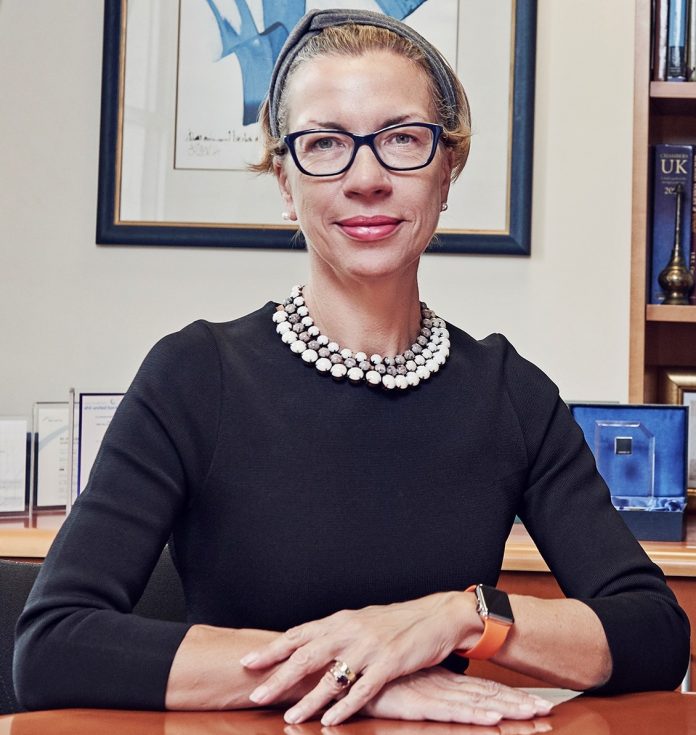The global Coronavirus (Covid-19) pandemic has raised the spectre of the world conjuring up a “new normal” once the outbreak is eventually contained if not eradicated. This alludes to governance, the economy, finance, the workplace, leisure, valuing human endeavour at whatever level and of course to the future construct of society.
A ‘new normal’ that has been sweeping the financial institutions, corporations and organisations over the last decade or so is sustainability and the adoption of responsible banking and investment principles. This is also in line with the UN Sustainable Development Goals (SDGs) which came into effect in January 2016.
The 17 SDGs (and the related 169 targets) sit at the heart of the UN’s 2030 Agenda for Sustainable Development which was adopted by all UN member states in 2015 with the aim to move the world towards a more sustainable position by 2030.
Informed by the SDGs and supported by the UN, the Principles for Responsible Investment (PRI) is an investor initiative in partnership with the United Nations Environment Programme (UNEP) Finance Initiative (UNEP FI) and the UN Global Compact. The UN PRI began in early 2005. UNEP FI, a UN-private sector collaboration with financial institutions, also launched the Principles for Responsible Banking (PRB) on 22 September 2019 signed by 132 banks from 49 countries.
Signing up to and adopting the above principles is one thing. Integrating them into a corporation’s articles of association, ethos, operations and future strategy is a much bigger challenge. One institution that has successfully integrated the above principles of responsible and sustainable finance into its day-to-day business operations is the London-based DDCAP Group, the pioneer of asset facilitation services across a diverse range of Shariah compliant products and instruments in both the primary and secondary markets, as well as a provider of automated financial system solutions to support those offerings via its, ETHOS AFPTM platform, serving over 300 financial sector clients worldwide.
One of the DDCAP’s key strengths is its integration of Sustainable and Responsible Actions (SRA) into its day-to-day business operations, and this could serve as a roadmap for other SMEs wishing to follow in translating principles into practice. The roadmap outlines how SMEs can start small with top-down initiatives that gain buy-in across key stakeholders in leadership positions.
Here Stella Cox CBE, Managing Director of DDCAP Group, discusses with Mushtak Parker the Role of DDCAP Group as an “SME market influencer” for responsible and sustainable finance
1. It is interesting that DDCAP is targeting SMEs to follow in its footsteps and SMEs to demonstrate commitment and influence on others in responsible finance, even if they lack the scale to shift the market on their own. What is the rationale behind this and why are SMEs so important in economies the world over?
Coming out of the AGM season, we have all seen how large corporations are under scrutiny from institutional investors, shareholders, public interest groups and their customers. SMEs aren’t currently subject to the same level of public scrutiny as they are often privately held and aren’t large enough to be the subject of such focus, so may not feel the same level of pressure as large institutions in this regard. Additionally, there may be many SMEs which do desire to do something, yet they feel they don’t have the power to effect change given their size.
But SMEs are the backbone of national economies and collectively their actions are hugely significant. In the UK alone, in 2019 SMEs accounted for 99.9% of the business population and three fifths of employment in the private sector and these numbers are largely similar across the world. An SME’s change in behaviour likely can’t shift its entire industry, but collectively any changes in behaviour (whether it be by changing the way they do business with their clients, where they source their products, how they treat their employees) can have positive impacts which can ripple across industries and geographies.
So our call to action to SMEs is to highlight that regardless of size, you can contribute to changing the way the world does business. You can, and you must. We do, however, acknowledge that it is a big step to take. Many SMEs will look to their own peers for leadership, as actions taken by peers that have at least some proven results and outcomes are easier to identify with and more applicable as relevant reference source. This is why we are so positive about the potential impact of collaboration as momentum, direction and output builds within the SMEs sector. It’s a big ambition, but who knows, if the SMEs lead, perhaps even the multinationals will follow?
2. From the point of view as both a financial intermediation firm and a market influencer, how do you define sustainable and responsible finance?
To us at DDCAP, sustainable and responsible finance means a way of doing business which focuses on delivering not only financial results but also social and environmental outcomes. It’s about how we make our own commitment to developing a more sustainable, equitable and prosperous world, which in our view now has even greater meaning in light of the disparities and difficulties that the current global crisis has exposed.
In practice until now, this has meant embedding corporate stewardship into our processes by reviewing the impact the business has (both positive and negative) on our stakeholders and then reviewing that again to see where we could effect change to improve our business practices and elevate our positive impacts on stakeholders.
3. In an organisational structure, what are the important prerequisites and ingredients to effect an efficacious transformation to a sustainable and responsible corporate and financing ethos?
The pre-requisites for establishing an impactful corporate sustainability and responsibility strategy are relatively straight forward: people, processes and infrastructure. By no coincidence, these are also some of the key requirements for responsible corporate governance. When you have a solid corporate governance structure and culture in place, it will provide the mechanism by which to develop an effective sustainability and responsibility programme. On the flip side, without solid corporate governance, a company isn’t a responsible corporate citizen and certainly the model itself isn’t sustainable. A system of checks and balances, of due diligence, of voluntary and mandatory compliance with national, international and industry standards builds a corporate ethos which naturally evolves into focusing on the next level of stewardship, sustainable and responsible corporate actions. In the focus on Environment and Social, it is important to remember that the G in ESG stands for governance. Good governance is the heart of best practices. When we share our own practices with others it shows our willingness to subject ourselves, and our practices and procedures, to third party scrutiny. We do so not just to obtain approval of our business, but to encourage constructive comment from which we can learn and also so that we might use that knowledge to better integrate with the practices of other, like minded firms and organisations to find a common approach that will support wider industry transformation. We would consider our progress in achieving this to be an important measure of our success.
4. Signing up to the UN Principles for Responsible Investment (PRI) and as an endorser of the UN Principles for Responsible Banking is one thing. The real test is to adopt these in the articles of association of the entity and to translate them into practice especially in the core and everyday business of the entity. What are the challenges in this respect?
As many in our industry know, we seek to incorporate our SRA clause in both commercial agreements and vendor and supplier documentation. This clause embodies our commitments to the PRI as well as the PRB and it is a key first step in embedding these values in our core business and corporate activities. Whilst we have had overall positive feedback on the clause, occasionally we have counterparties which are hesitant about the impact or potential outcome of its inclusion. We welcome these discussions, as they allow us the opportunity to engage with our counterparties to discuss our values and to understand theirs. Quite often our institutional clients are interested to learn more about the business culture of DDCAP. They are interested to know why we, as an intermediary and service provider, have developed our corporate and ethical infrastructure as we have. Quite often that additional awareness of us prompts them to consider their own business and transactional requirements, especially the importance of extending their governance oversight to additional aspects of third parties’ services that are provided to them to undertake their business. It has taken DDCAP some years to build and roll out our responsible business and actions strategy but we have made sure that our strategy has been formed consciously from top down, with shareholder approval, through strategy and policies set by our group Board and actions undertaken through our senior executive. Our esteemed Sharia’a Supervisory Board has been fully informed throughout. By reverse we have done our utmost to ensure that all members of the DDCAP working community are informed, included and are able to have input, equally consciously and at various levels, into the decision making processes. We ensure that we share outcomes, too. As an SME, we are actually fortunate that our size and governance infrastructure enables us to remain responsive and proactive, thereby ensuring that we can put documented strategy and policy into business practice within a reasonable timeline. In terms of our corporate social responsibility we can also respond to both wider issues and individual situations that are particularly meaningful to people working within our Group. Managing the strategy to action timeline is, quite obviously, a major and ongoing challenge for financial institutions and organisations of significant size so, in that respect, we fully appreciate our ability to be agile.
We are also very aware of other initiatives such as B Corp and Purposely in the UK which work with small and large corporates to amend their articles of association to incorporate a broader stakeholder model into the corporate structure. Obviously we are very interested in these initiatives and their relevance to us and we are actively monitoring developments in these areas and shaping our model to respond.
5. How did DDCAP Group specifically integrate Sustainable and Responsible Actions (SRA) into its day-to-day business operations? Surely this requires leadership commitment of shareholders, senior management and staff and the resources commensurate to achieving these goals?
This is something we focus on a great deal in the Case Study that we recently jointly released with RFI Foundation*. Initially, rather than proposing a full traditional CSR programme, in my role as Managing Director I gradually introduced to our shareholders and to the Board a series of individual CSR initiatives, rather than a full CSR programme. Each proposal was reviewed and accepted or rejected on its merits which didn’t allow the opportunity for a full programme to be rejected as a whole for fear of a new or seemingly divergent path. With more individual successes, I broadened the scope of the initiatives proposed to include SRA as well as CSR type initiatives. After several years of what we perceived as success with these initiatives, too, I was able to present a broader SRA agenda which incorporated existing programmes as well as new plans which were subsequently approved by our shareholders and also the Board. This new programme included establishing a working group focused on the SRA agenda as well as the appointment of Jennifer Schwalbenberg, Head of Corporate Responsibility at DDCAP, who has since been tasked with championing the wider initiative. With Board of Director engagement, the appointment of a dedicated senior executive and creation of a forum for discussion, we had the platform to highlight the importance of our practice to colleagues in-house and integrate our SRA agenda more fully across the organisation with the purpose of building upon it. We then made sure that every department in our organisation was represented around the table for the SRA working group and therefore had its own voice. Consequently we were able to connect up various initiatives that were already in place with new ones across departments which provided great momentum to creating a more robust programme that permeated our Group. Within the past year, we were honoured that one of our members, Dr. Akram Laldin, accepted the role of SRA Champion within our Sharia’a Supervisory Board.
6. Do you think there is a danger that some entities pay lip service to principles and conventions but when it comes down to commitment and resources, they retrench because their thinking is based primarily in pursuing profit maximisation at any cost and of course shareholder value?
There is always that danger, and there are likely those who do just that. Then there are others who believe in the values they have committed to, but are more hesitant to make significant changes for fear of how it could impact a going concern. But perfect shouldn’t be the enemy of good. The risk of bad players shouldn’t be the reason to stop any entity, large or small, embarking upon their own journey and, as a first mover, the advantage is in having time to learn and work out how business models can be realigned for profitability and impact. The corporate and regulatory environments are ever changing and the focus of voluntary principles and conventions may not always be voluntary. Many governments and regulatory bodies (Malaysia and the EU, for example) are already embedding these values into their laws and regulations. What is voluntary now may not be for much longer. Work being done now to find ways for our companies to be profitable, whilst voluntarily committing to a more sustainable and responsible model, have created awareness and built knowledge that will be put to good purpose when legal and regulatory requirements and standards are imposed more widely. It will also enable private and public sector to work more collaboratively for positive impact.
Even now, increasingly we see our clients and counterparties asking us for evidence of our actions to support our commitments as part of regular relationship management and new client onboarding. Similarly so from the industry organisations that have accepted us as either a signatory or a member. As mentioned before, we already submit our industry organisation reporting, some of which is no longer voluntary, to review and opinion by independent third parties to ensure that our disclosures and actions statements are fully supported by our actions.
7. What has been the impact of DDCAP Group’s commitment to responsible and sustainable finance on the bottom line, shareholder value, remuneration policies, organisational effectiveness, staff satisfaction, customer relations etc? Is there a direct correlation between this commitment and the various achievables mentioned above?
For staff: we have focused on a top down/bottom up strategy to motivate the largest number of staff, with the widest reach across the organisation and enhanced engagement and communication through a series of townhall meetings and learning sessions which has resulted in increased staff engagement on the SRA initiative.
For the executive level and management: SRA considerations have been incorporated within the agendas for all executive and senior management level meetings and risk committees, including Board Meetings, reflecting the direct impact of SRA on our core business. SRA considerations have also been incorporated into executive and senior management annual objectives, as well as those of their direct reports, and we have seen the leadership become more aware of how SRA matters impact and/or dovetail commercial considerations.
As awareness has grown and staff and management have become actively involved in promoting the SRA agenda, individual staff contributions Are recognised during interim and annual review processes but not linked to remuneration.
It’s still too soon to consider bottom line impact and, frankly, that hasn’t been the top down motivator so enhancement of bottom line in isolation will never be considered as an indicator of our success. However we are encouraged to see how many of our existing clients are proactively engaging with us on green/sustainability matters through on boarding and mandatory due diligence procedures and, similarly, we are encouraged by the positive feedback we have received with contributors ranging from large, financial sector institutions and professional advisory firms to SMEs and individuals. In terms of shareholder perspective, seeing our Group continue to expand, develop its businesses and compete effectively, whilst upholding the values that we prioritise, is full justification of the supposed risks that we took tin disclosing our intention to continue to focus on realigning our business model and business operations to reflect our commitments and safeguard our company ethics.
8. As a pioneer of Sharia’a compliant intermediation services, bringing automation to the industry sector and serving clients across the globe, there seems to be a natural synergy between responsible finance and Sharia’a finance, albeit there is a clear delineation of the latter’s ethos especially on the proscription on riba (interest), maisir (gambling and associated speculation) and gharar (deception). Do you think these synergies need to be promoted and consolidated more aggressively and how could these be implemented to achieve the common goals of sustainable and responsible finance?
An excellent question! Promotion of the synergies between Sharia’a and Islamic financial practice has been such a theme of recent years. Through initiatives such as Bank Negara Malaysia’s Value Based Intermediation we can see that it resonates equally with government and organisations, such RFI Foundation of which I am a Trustee, were established for purpose. I do agree with you that Islamic finance has its own unique identity and an ethos that results from being a faith-based subset of responsible finance and investment. However the call to action for firms to contribute to the responsible and sustainable finance movement is one that, in my opinion we cannot afford to ignore. Through the principles of Maqasid Al Sharia’a Islamic banks and financial institutions have moved beyond business activities that reflect considerations solely of Sharia’a compliance, which will always prevail, to those that encompass and reflect social and environmental impact considerations, too. In our industry sector we are increasingly focused on the S in ESG and it is our responsibility to afford equal attention to the E and the G. Earlier we spoke of the process of responsible and sustainable financial practice making its transition from voluntary to mandatory. Perhaps Islamic financial sector firms will have an advantage here. Since 2012, as we strove to enhance our Sharia’a focused corporate governance pillar, we have submitted DDCAP group business activities, including our transactional processes and procedures and those of our automated platform ETHOS AFP™, for the scrutiny and validation of our own Sharia’a Supervisory Board as well as to the esteemed advisors of each of our clients. As all Sharia’a compliant firms will know, that validation is a business necessity for us and it underpins the governance of our industry. However there have been occasional exceptions of practices by firms that was not aligned to Sharia’a Stipulation, or even expectation, and those have resulted is significant reputational damage, regulatory sanctions and litigation. Given how important these issues are becoming, those firms in the sustainable and responsible finance sector which are choosing to simply pay lip service to their commitments will already find increased reputational risk in doing so and, in time, they will likely find themselves in direct contravention of the laws and regulations to which they are obliged to adhere.











